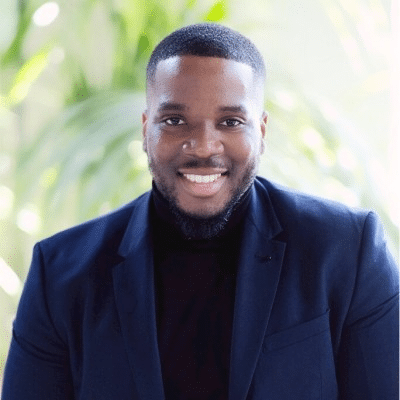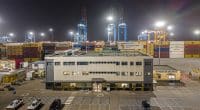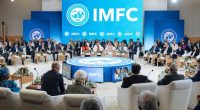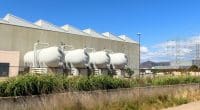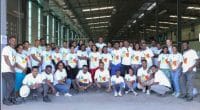For the third day of our special Mobility and Transport Week, the AFRIK 21 editorial team met Botch Mbola, founder and managing director of REP-R International. In this interview, he talks about his career, the main challenges he faces and the eco-responsible vision of his Paris-based start-up, which aims to formalise the profession of car mechanic in Africa.
For the third day of our special Mobility and Transport Week, the AFRIK 21 editorial team met Botch Mbola, founder and managing director of REP-R International. In this interview, he talks about his career, the main challenges he faces and the eco-responsible vision of his Paris-based start-up, which aims to formalise the profession of car mechanic in Africa.
Benoit-Ivan Wansi: What country are you from and can you describe your academic and professional background?
Botch Mbola: I come from the Democratic Republic of Congo (DRC), formerly Zaire. My background is in finance and banking. I did my studies in Paris, France, particularly the whole of the Licence cycle. I then obtained a Master’s degree and a further diploma in Geneva, Switzerland.
In September 2022 you created the start-up REP-R International. What is its mission and business model?
It’s true that we created the start-up in 2022, but that was after a long maturation phase. It all started with my experience at Nexus Automotive Group, where I began my career. I was able to count on the extraordinary support of the Group, which backed me and provided me with the resources I needed to develop this idea and bring it into line with the needs of the industry. So we launched the project with the main aim of moving mechanics away from the informal sector and towards the formal sector, while at the same time having a business model in line with everything that’s going on today in terms of technology and ‘Uberisation’. For example, by offering a container in a fully-equipped centre containing all the necessary equipment to enable its mechanics to carry out repairs using appropriate tools. And with a car expert on hand to give advice.
You’re looking for finance. How much do you need and for what specific purpose? Who are your partners so far?
Right now we’re looking to raise €650,000 to set up the centre itself (its construction), for working capital requirements, for all the equipment and machinery, and for the overheads involved in running it. At this stage, we have a number of partners working with us, starting with Nexus, who incubated us from the outset, both financially and through their contacts in the sector. They don’t all contribute in the same way, but each partner is essential to the viability of our project.
REP-R sees itself as the ‘Uber’ for garages in Africa. What services are you offering to get African mechanics out of the informal sector?
First and foremost, we want to promote the value of these mechanics who live from day to day doing small repairs left and right. When we talk about formalising the trade, most of them only see taxes and a reduction in their turnover. So we do some work beforehand to explain to them the need to get out of the informal sector, because it offers more opportunities and stability. In concrete terms, we’re going to provide these people with essential tools, more customers and a level of confidence that will encourage them to offer their services at much higher rates than they do at present. And according to our market research, this is still very attractive, both for the customer and for the mechanic. As well as raising awareness, we’ll also be setting up an administrative centre to support all the steps involved in formalising and developing these skills.
You place great emphasis on digital solutions and the recycling of automotive waste. Are your teams equipped to deal with these issues?
Our team (in particular Corentin Banzet) has skills in digital solutions that have proved their worth, particularly in Ivory Coast. In this respect, we are in the process of developing an application coupled with geolocation that will link motorists to mechanics according to their breakdown or geographical location. In any case, we’re going to tailor our digital solutions as closely as possible to local needs. We also have recycling partners in Africa and abroad. It’s not going to be easy in terms of logistics, but it’s necessary because some waste cannot be recycled on the continent and will have to be exported.
“Environmental impact is a key factor in our decision-making and operating criteria,” you state in your communications materials. In this respect, some people insist that only electrification can make the sector carbon neutral. Should the expansion of electric mobility disrupt your business in any way, or rather reinforce your eco-responsible practices?
Clearly, electrification alone cannot achieve carbon neutrality for the sector. Nevertheless, at our level we want to be ahead of the game by offering training on these issues at our centre. We are also going to put in place all the tools and solutions needed for automotive recycling. There are major problems in this area, including outside West Africa, where the majority of spare parts are not recycled. We have also noticed that some oils are incinerated. After that, it’s also important for us to adapt to the massive arrival of electric vehicles, which require specific vehicle maintenance. We’re also keeping a close eye on the digital transformation project in the municipality of Plateau in Abidjan, which should revolutionise a number of things. All this reinforces our eco-responsible practices.
Speaking of Ivory Coast, which is your main country of operation. Will you be present, like other mobility start-ups, at the Africa Automotive Show in Abidjan, which will be held in November 2023 to coincide with the 3rd Intra-African Trade Fair (IATF) organised by the African Union (AU)?
We’ve been informed about this event, which will be held in Ivory Coast, and we won’t hesitate to announce our participation at the appropriate time.
What is your ambition for the next ten years?
Over the next five years, REP-R International hopes to conquer French-speaking Africa, starting with Ivory Coast, followed by Senegal, Cameroon and the DRC. We will then move on to Ghana, Egypt, Morocco and South Africa, with the aim of setting up at least three centres in each country. And, of course, East Africa, which is a major player in the continent’s automotive market.
Interview by Benoit-Ivan Wansi

